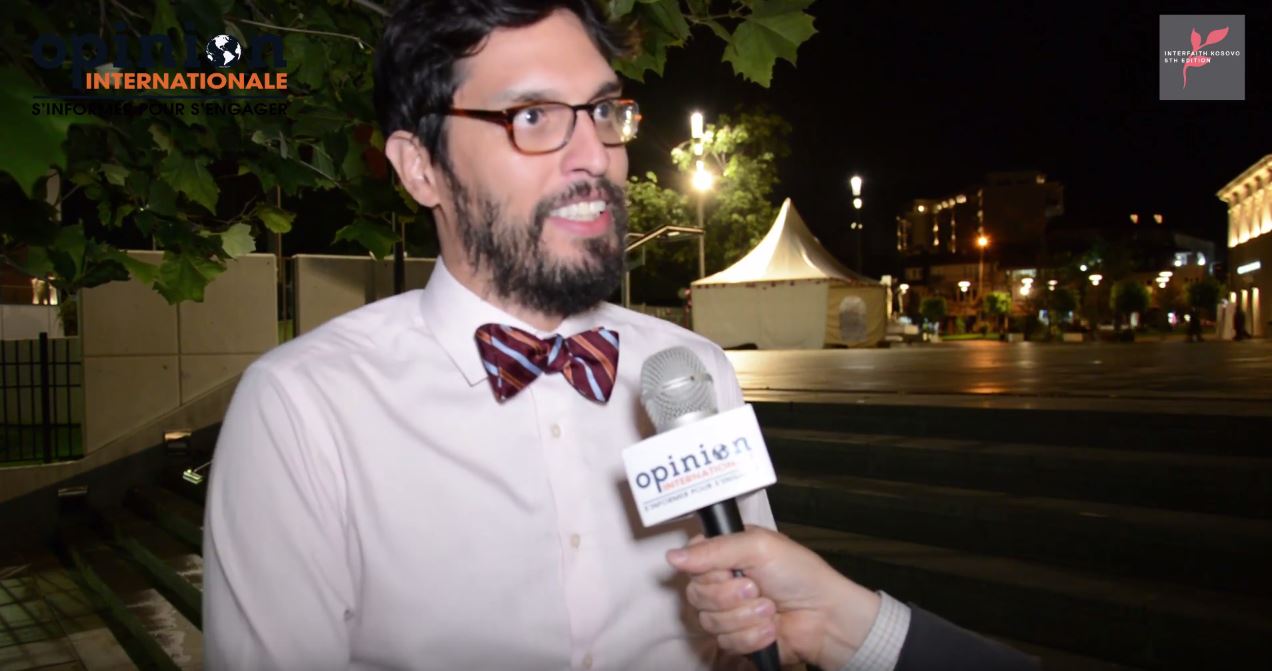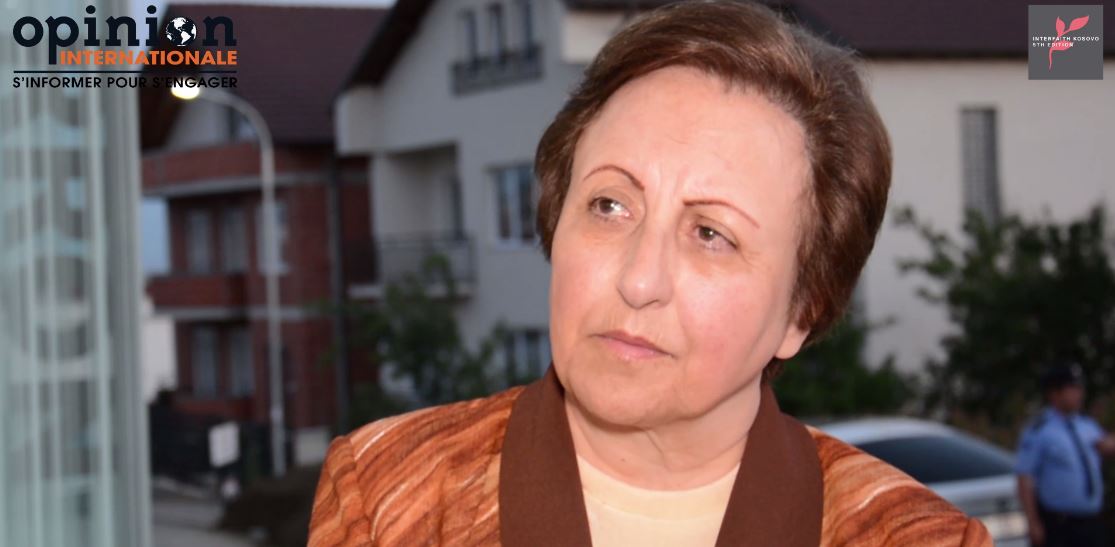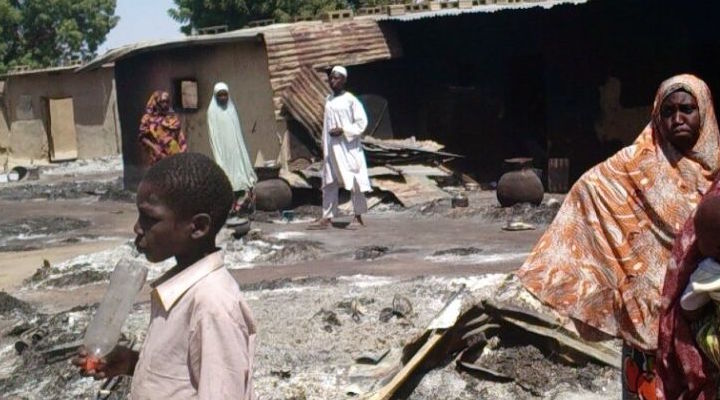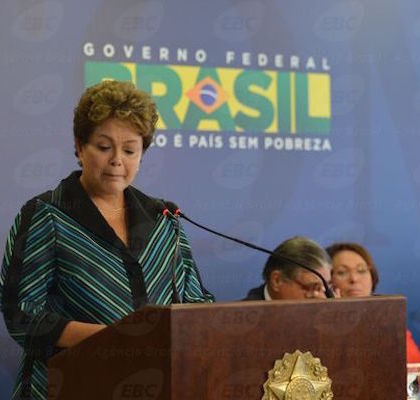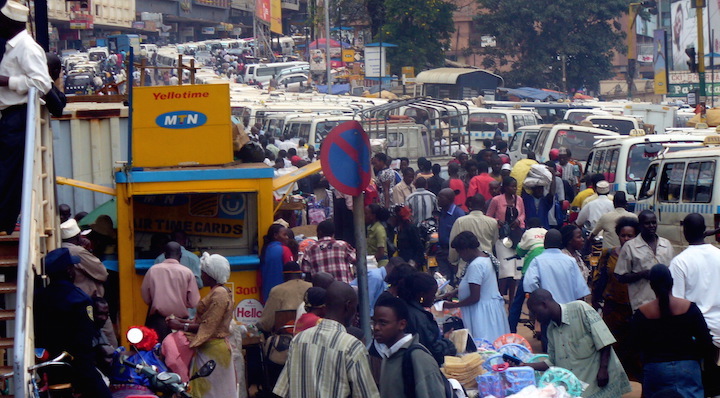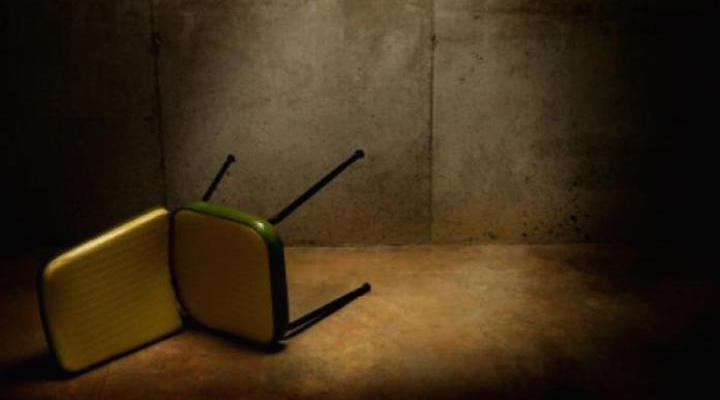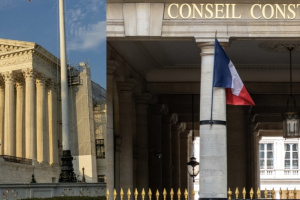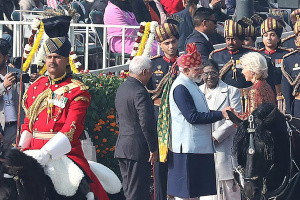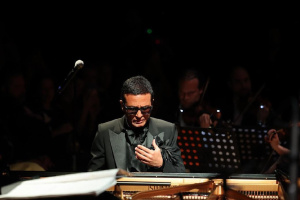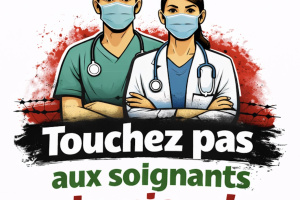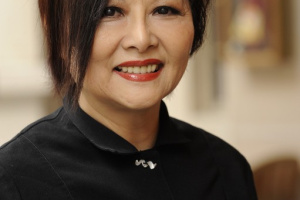20 years ago, on the 27th of April 1994, the first free and democratic elections were held in South Africa. Following 4 centuries of oppression and after 40 years of a hated and racist regime whose principal characteristic was the institution and the implementation of social engineering aiming at putting a black majority at the service of a white minority, the whole world agreed on the « miraculous » outcome of the South African transition. At the head of the ANC (African National Congress), Nelson Mandela, one of the longest-detained political prisoners in the world, was elected president of all South Africans. At the same time, the success of the Truth and Reconciliation process and the commission of the same name presided by Desmond Tutu, gave birth to the promise of the « rainbow nation».
On the 7th of May, two decades after this universally hailed victory and peaceful transition, South Africans will participate in the 5th free and democratic elections of their history. It will also be the 5th time that the party that ended apartheid and draws its legitimacy from that battle will undoubtedly win the ballot. However, behind this undeniable victory emerges, for the first time, a series of unique factors, maybe putting South Africa at the crossroads of its future.
Not only is it the first time that South Africa’s tutelary figure, Nelson – Madiba – Mandela, is no longer there to symbolize a reconciled nation and to keep a benevolent but demanding eye on the destiny of his country, but it’s also the first time that the « born free » have reached the voting age, those that have grown up without apartheid and the struggles of the older generation. Finally, and most importantly, it is also the first time that the elections take place in a context where the ANC is the subject of harsh criticism as well as internal and external pressures that it had never experienced until now, possibly announcing the end of its undisputed dominance.
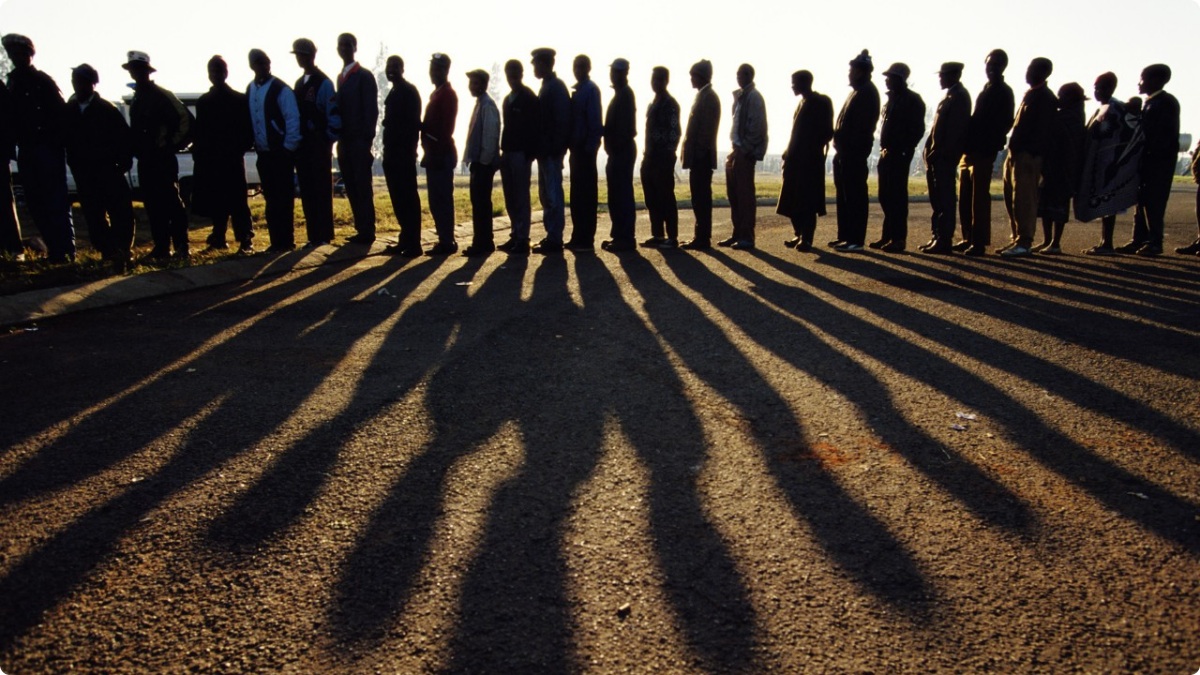 Marikana and Nkandla standing for inequality and corruption
Marikana and Nkandla standing for inequality and corruption
Looking back on the 20 year’s distance covered so far, South Africa’s development for which the ANC is primarily responsible indeed leaves a sense of unfinished business. Of course, South Africa has become a « BRICS » (Brazil – Russia – India – China – South Africa), an emerging country whose economy the « old world » envies: together with Nigeria, and despite a slowing pace in the two last years, South Africa is a driving economic force in Africa. However, as much as its disastrous inequality rate (according to the World Bank figures, South Africa is one of the most unequal countries in the world), it is the recent events in Marikana (August 2012) and Nkandla (the story came out at the end of 2012) invading South Africa’s political and media arena that starkly remind us that if indeed a miracle had taken place, there still was a long way to go.
Beyond the images that we have in mind of police forces firing with live bullets on unarmed miners, instantly bringing us back to the worst moments of apartheid – 36 miners killed by the police in what seemed to be a totally disproportionate reaction – the Marikana tragedy reminds us to what point the ANC has made many promises but has yet far from addressed the structural problems that South Africa faces. These issues, partly inherited from apartheid, have also been perpetuated by the party itself.
Marikana is there to remind us that South African and international mining conglomerates have retained exorbitant power and continue to impose miserable living conditions and salaries on thousands of miners. This reality reflects the choices made by the ANC – but did it have the choice? – during the transition and negotiations at the beginning of the nineties: take hold of political power in exchange of economical power left to the white community, particularly the English-speaking South Africans.
The black middle class? A tree hiding a forest of inequalities
If a minority of « black diamonds » (estimated to 2 millions in a total population of 53) were invited to the table of the holders of economic power and have become immensely rich, notably through the Black Economic Empowerment (BEE) programme, and if a middle class is emerging (6 million out of 53), they are the tree that hides the forest of millions of South Africans: close to 45 percent of the population lives on less than 2 US$ per day and unemployment officially affects 25.5 percent of the labour force.
And yet, if social inequalities endure and decrease only very gradually, one would have to be dishonest or blind to ignore the substantial progress achieved since the ANC is in power. 45 percent of the population lives on less than 2 US$ per day but, according to the South African Institute of Race Relations, that percentage has more than halved since 1994. With reason, the ANC would also certainly make use of statistics to show how over three-quarters of households now live in formal housing and over 80 percent of these houses are electrified and have access to running water.
The ANC is accused of nepotism and perceived to be corrupt and ineffective
But beyond inequalities, the very legitimacy of the ANC is waning. The flaws of a dominant party certain of winning the elections since 20 years are becoming increasingly obvious. In this respect, the « Nkandla saga », name of the private residence of the head of state, Jacob Zuma, is highly revealing. While more than 16 € million has been spent to improve the security of his home, a report of the South African public protector stated that some of the improvements made had nothing to do with security. They included, among others, the construction of a swimming pool…
The ANC is accused of nepotism and increasingly perceived as being corrupt and ineffective. A 2011 Afrobarometer survey showed that 50 percent of respondents saw government officials as corrupt and 25 percent thought that corruption was one of the country’s most pressing problems. When only 13 percent thought of corruption as significant in 2002, this brutal loss of confidence is due to a long series of affairs involving the government and its members and of which Nkandla is only the most recent setback.
The historical coalition on which the ANC relies is eroding
For the ANC, in view of the upcoming elections on the 7th May, the deepest and the most serious consequences of its deplorable image lie as much in the questioning of the historical coalition on which it relies as in the dissidence of part of its officials and electorate. ANC’s power is built on a tripartite alliance involving the Congress of South African Trade Unions (COSATU) and the South African Communist Party (SACP). In power since the transition, this alliance, in which the trade unions and the communists represent the left wing of the party, is expected to work towards the transformation of the South African society.
Although black trade unions building on more than 2 million members have consistently called on the government for a genuine social policy and better working conditions for all, they have always supported both the ANC and the government. But, for the first time, this cohesion was undermined in January 2014 when the National Union of Metal Workers of South Africa (NUMSA), one of the largest members of the COSATU affiliates (with 339, 567 members), voted not to support the ANC in the coming polls. NUMSA cited the numerous political and corruption scandals that have emerged over the past few years and its low response to the Marikana disaster.
Appearance and proliferation of small parties: The ANC’s base is cracking
Of even more concern to the ANC is the undermining of its foundations by small parties building their policy programme on claims coming from the ANC’s own base. As early as 2008, in view of the 2009 elections, the Congress of the People (COPE) founded by ANC dissidents and now holding 30 seats out of the 400 in parliament had initiated what seems to be an underlying change in a political landscape where only the Democratic Alliance (DA) headed by Helen Zille, the former white mayor of the Cape, represents an audible opposition (67 seats in parliament today).
Worse still, the tone of the upcoming elections is set by the creation at the beginning of 2013 of the party called Agang (« Let’s build ») by Mamphela Ramphele, an emblematic figure of the anti-apartheid struggle and former head of the World Bank. Fortunately for the ANC, the DA, hoping to get rid of its image of a « white party », failed, at the beginning of the year, to nominate Mamphele Ramphele as its presidential candidate.
Malema leading the EFF: a radical discourse to the left of the ANC
However the most significant division is embodied by the emergence of the new Economic Freedom Fighters (EFF), party symbolically launched at Marikana by the tumultuous Julius Malema, former president of the ANC Youth League. His exclusion from the party resulted in the dissolution of its most powerful wing even though it specifically represented one of the principal means of reaching out to the South African youth.
Claiming to be the voice of those disgruntled by the ANC, Julius Malema voices a radical message calling for the nationalisation of mines and denouncing the collusion between government, the black bourgeoisie, the trade unions and « big business ». Described and perceived by most commentators as running a populist line directly inspired by Chavez, he particularly appeals to the underprivileged South African youth. Although an Ipsos survey revealed that a bare 4 percent of voting-age South Africans supported the EFF, the media and symbolic impact of the Malema « phenomenon » greatly exceeds the projected vote results of his party.
At the crossroads
South Africa’s political opposition is intensifying but it remains too fractured and divided to represent a genuine threat to the ANC. Credited with more than 60 percent of the votes, the ANC will win this ballot. But, for the first time, the question of knowing whether this might be the ANC’s last victory is in many minds. The steady erosion of the ANC vote is an indication of this questioning and disillusionment: The ANC won 65.9 percent of the vote in the fourth democratic elections in 2009 against 69.7 in 2004.
The role of « born free » that have grown up without apartheid and have no a priori reason to vote for the « historical party » will not be decisive. Only 30 percent of those between the ages of 18 to 19 have registered to vote and they represented approximately 3 percent of those registered to vote. But in the future, the vote of the youth representing 40 percent of the population will be based on rational reasons and not ones founded on historical legitimacy. Jakkie Cilliers, head of the South African Institute for Security Studies (ISS), asserts that « this will be the last election in which the majority will be voting with their heart rather than their head. »
Jakkie Cilliers is confident that « [the ANC’s decline] is the start of a sea change and the start of a normalization of South African politics » ; unless violence in South Africa continues and amplifies because of a fragmented opposition, incapable of uniting and channelling the disappointment of an ever increasing part of South Africans. Between 2009 and 2012, there has been an average of 2.9 unrest incidents a day in the country. This is an increase of 40 percent over the average of 2.1 unrest incidents a day recorded for 2004-2009.
South Africa, it seems, lies at the crossroads.















